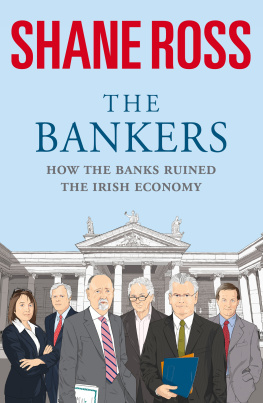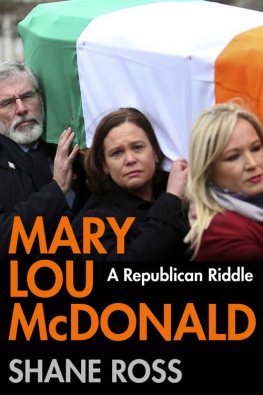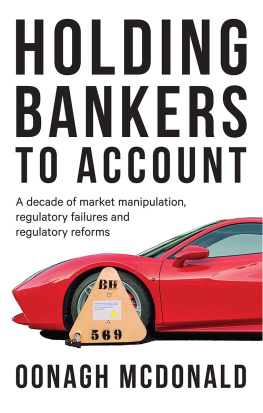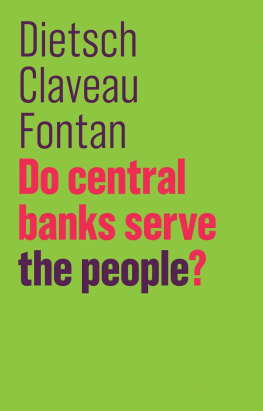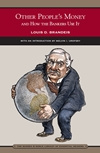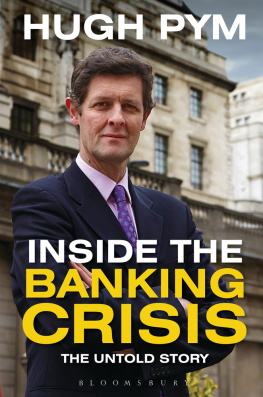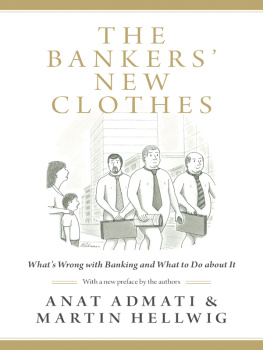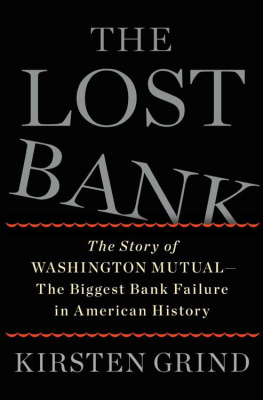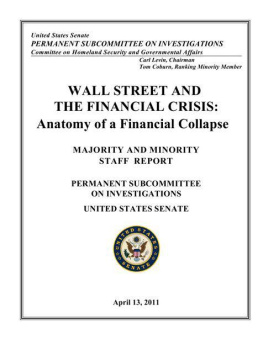The Bankers
How the Banks Brought Ireland to Its Knees
SHANE ROSS

PENGUIN IRELAND
Published by the Penguin Group
Penguin Ireland, 25 St Stephens Green, Dublin 2, Ireland (a division of Penguin Books Ltd)
Penguin Books Ltd, 80 Strand, London WC2R 0RL , England
Penguin Group (USA) Inc., 375 Hudson Street, New York, New York 10014, USA
Penguin Group (Australia), 250 Camberwell Road, Camberwell, Victoria 3124, Australia
(a division of Pearson Australia Group Pty Ltd)
Penguin Group (Canada), 90 Eglinton Avenue East, Suite 700, Toronto, Ontario, Canada M4P 2Y3
(a division of Pearson Penguin Canada Inc.)
Penguin Books India Pvt Ltd, 11 Community Centre, Panchsheel Park, New Delhi - 110 017, India
Penguin Group (NZ), 67 Apollo Drive, Rosedale, North Shore 0632, New Zealand
(a division of Pearson New Zealand Ltd)
Penguin Books (South Africa) (Pty) Ltd, 24 Sturdee Avenue, Rosebank, Johannesburg 2196, South Africa
Penguin Books Ltd, Registered Offices: 80 Strand, London WC2R 0RL , England
www.penguin.com
First published 2009
Copyright Shane Ross, 2009
The moral right of the author has been asserted
All rights reserved
Without limiting the rights under copyright reserved above, no part of this publication may be reproduced, stored in or introduced into a retrieval system, or transmitted, in any form or by any means (electronic, mechanical, photocopying, recording or otherwise), without the prior written permission of both the copyright owner and the above publisher of this book
ISBN: 978-0-14-193911-7
Acknowledgements
I am a cranky curmudgeon at the best of times. I spend my life complaining about the mistakes, impatience and inefficiencies of others. Other people are mostly impossible, lazy, unhelpful and rude.
Writing a book makes matters worse. All human beings become intolerable. Neighbours become nuisances. Friends become enemies.
At some stage in the middle of writing this book the penny dropped. As everyone I encountered became thoroughly obnoxious, I was reminded of an incident from my long-ago drinking days. At some time during that fuzzy period I turned to a drinking companion and let rip: The more I drink, I declared loudly, the more objectionable you become.
Today I happily acknowledge that it was I, not my companion, who was the problem in those distant days. It is harder, with the benefit of full sobriety, to suggest that everybody I met in recent months could have suddenly turned into poisonous old foul-mouths. Yet that is the only alternative to the less than palatable truth: writing a book turns angels into devils, saints into sinners, sane men into monsters.
So it is probably appropriate to apologize first and to acknowledge second. Or to do both together.
This book has been a pleasure to write. Even some of Irelands most despised bankers have been helpful in enabling me to put the pieces together. Happily I have been able to speak to many of the key players in this dark story. Some refused. Many have not wanted to be quoted directly but, suffice to say, there is no bank where I have not interviewed at least one director. In several cases it has been more. Senior politicians of all parties have assisted me in establishing the truth; even the walls of the Central Bank and the Department of Finance have been penetrated. Let me thank all those who wished to remain anonymous but who spent hours telling me about the shenanigans inside their workplaces.
To my employers in the Sunday Independent, special thanks for allowing me six months off to write the book.
More specifically, to those who laboriously helped to compile it, a deep expression of gratitude. To Nick Webb, deputy business editor of the Sunday Independent, heartfelt thanks for reading the book chapter by chapter and making valuable suggestions.
To Nuala Walsh, my personal assistant, for putting up with days of intolerable tension and for giving of her own time to dig up valuable information.
To Elizabeth OBrien, for her patience and diligence in supplying research which provided priceless background.
To Paul Kearney, for his calm endurance while checking the book for accuracy.
To my good friend Ralph Benson, who took four weeks off from his job to share his expertise in a field where I was sorely deficient.
To David Conachy, photographic editor of the Sunday Independent, for helping to select and assemble the photographs.
To my editor at Penguin, Brendan Barrington, who made my task much more difficult by his conscientious insistence that it was important to back up my instinct for sweeping generalizations with tiresome evidence. His criticisms and suggestions have improved the story immeasurably. I am deeply grateful to him.
To my wife Ruth, who never complained about my long absences a tendency which, on reflection, could be a cause for alarm, not gratitude. She was endlessly indulgent of my latest little obsession and listened patiently when I complained of the daily spat with whoever crossed my path.
I dedicate the book to my younger brother Connolly, who died suddenly in December 2007, and to my great friend Paul Tansey, who would have written it much better. Paul died equally sadly in September 2008. They are both badly missed.
Prologue
26 November 2008
It was the bankers last supper.
The banking crisis was at fever pitch; the nations finances were in peril; but Irelands banking elite was celebrating in a private room in a discreet hostelry near Dublins St Stephens Green.
The occasion was ostensibly to mark the retirement of the chairman of the Financial Regulator, Brian Patterson. At the time the watchdog was in the wars, but Irelands bankers wanted to give Patterson a good send-off. Patterson had, in fact, retired seven months earlier, but his departure was a good hook for a meeting of allies under siege.
Dinner with the watchdogs was part of the job; but it was important that no news of the party leaked to the media. Nor did it. The bankers were all careful not to be spotted as they entered and left. Any media story that the regulators were living it up with the bankers would have been dynamite. A view that the two groups were far too cosy was gaining credibility with the public by the day.
Pattersons chief executive at the Financial Regulator, the beleaguered Patrick Neary, was another guest of honour at the dinner. During the previous six weeks Neary had been the target of a wave of media criticism for his handling of the unfolding crisis that had caused the government to guarantee the liabilities of the Irish banks.
Not used to the spotlight, Neary had made matters worse. A disastrous interview on RTs Prime Time programme on 2 October had exposed the normally camera-shy regulator to tough scrutiny. Two weeks later Neary had been grilled by an Oireachtas committee. Calls for his resignation were surfacing as he tried to explain his failure to cool the bankers lending to the property market. Michael Casey, a retired economist at the Central Bank, had broken ranks with his former employer and exposed the watchdogs flaws. In the Irish Times of 14 October he had highlighted the crux of the problem: Close relationships between regulators and banks difficult to avoid in a small country will have to be ended.
The hush-hush dinner was a sure sign that the relationship was still close, despite public unease about the mutual admiration between bankers and regulators. Pat Neary was in his comfort zone that night as he tucked into the strip loin of tender beef. Mary ODea, Nearys high-profile number two, and Con Horan, the watchdogs prudential director, were happily mixing it with those whom they so often supervised. Jim Farrell, Pattersons successor in the chair, was there too, dining at the only table in the room, laid for twenty-two. Farrell was a popular choice of successor for the bankers as he himself had been one of their own over a thirty-year career with Citibank.

